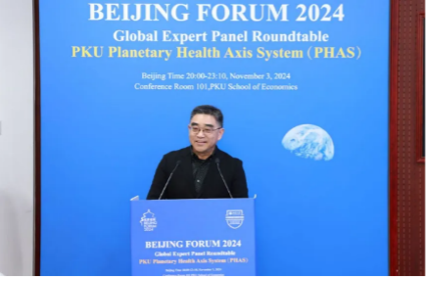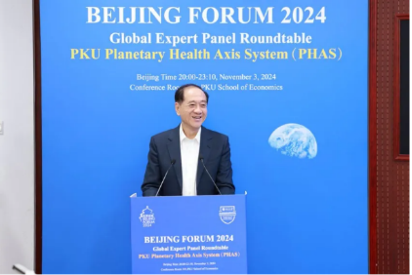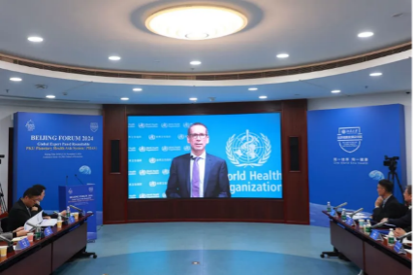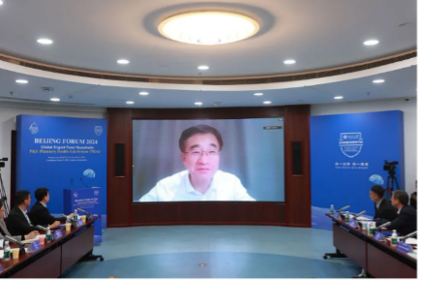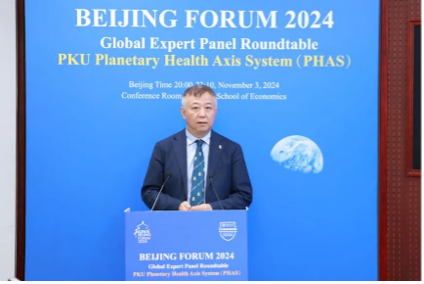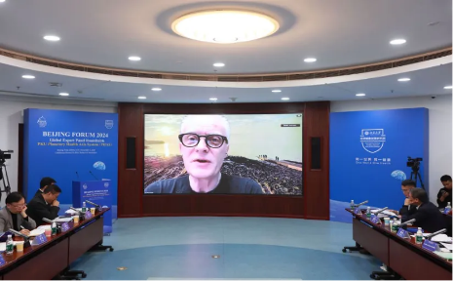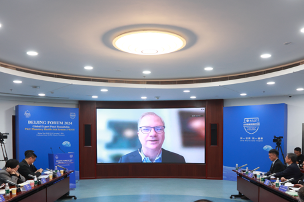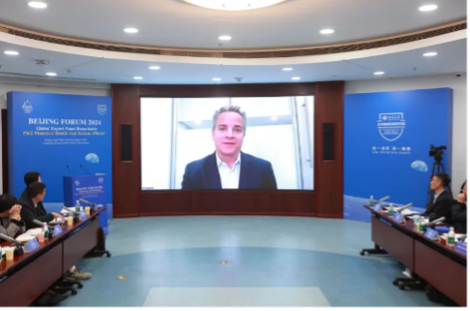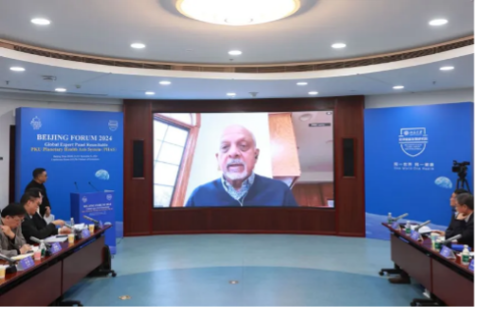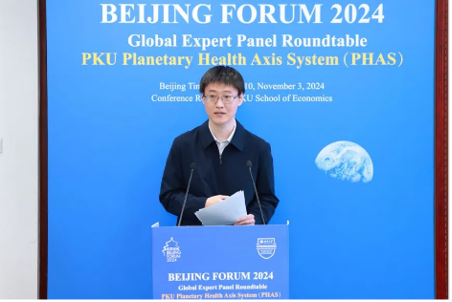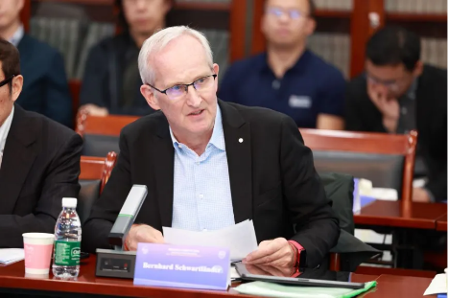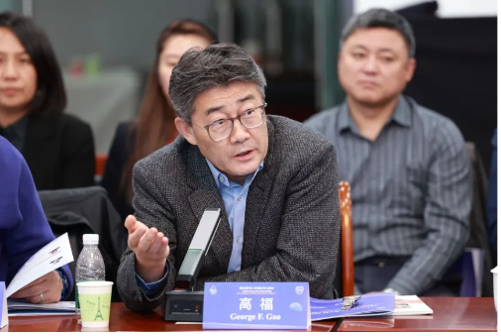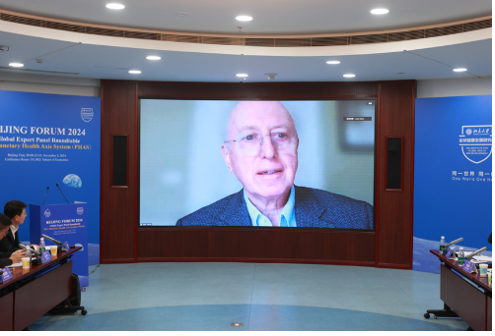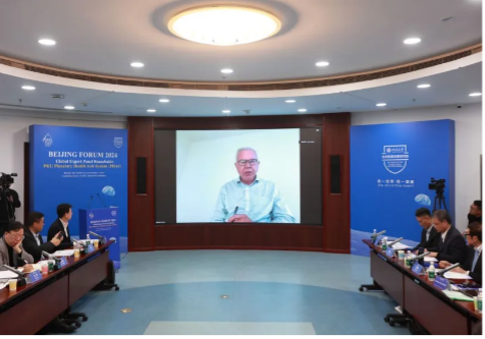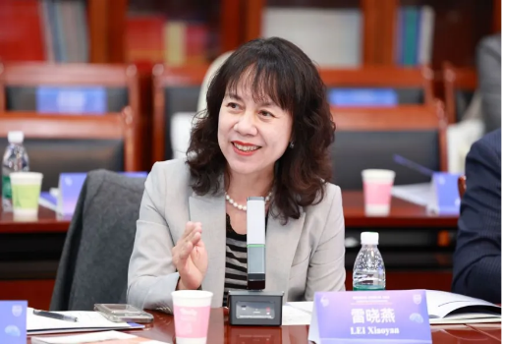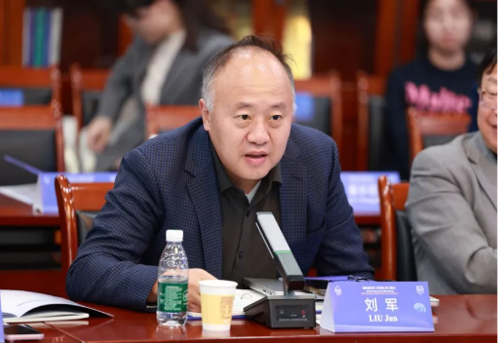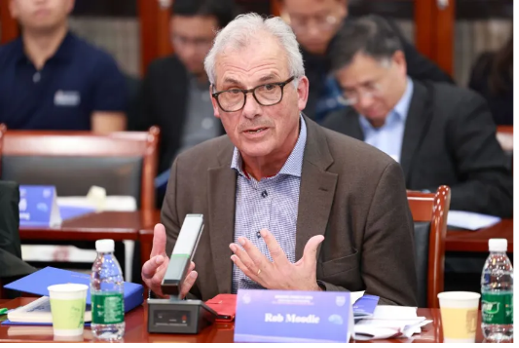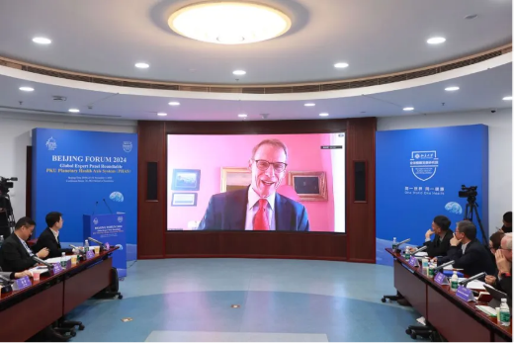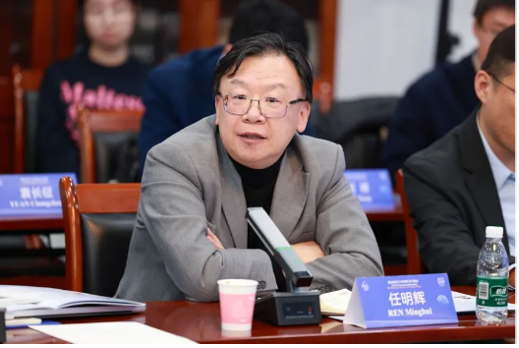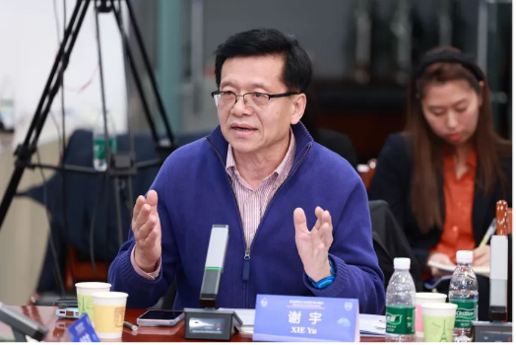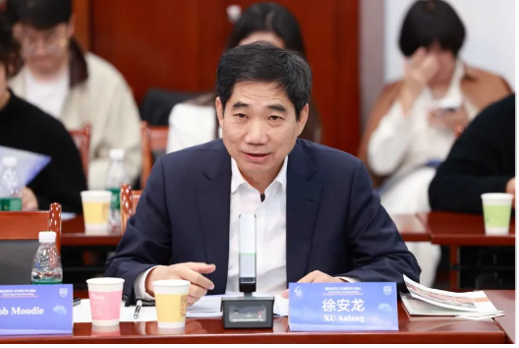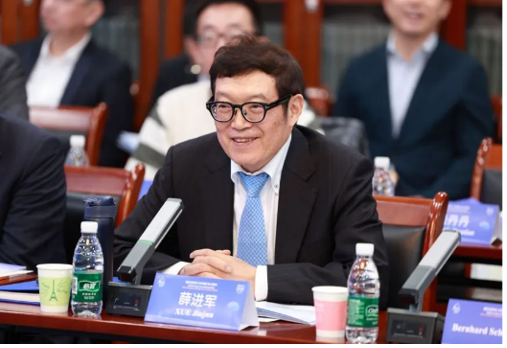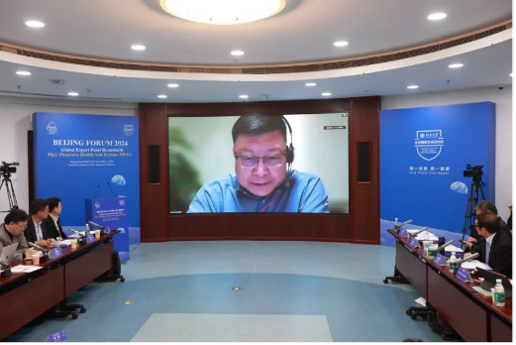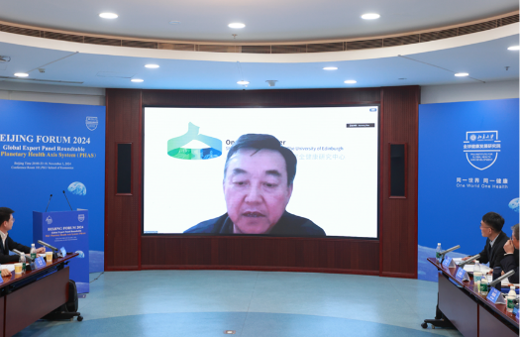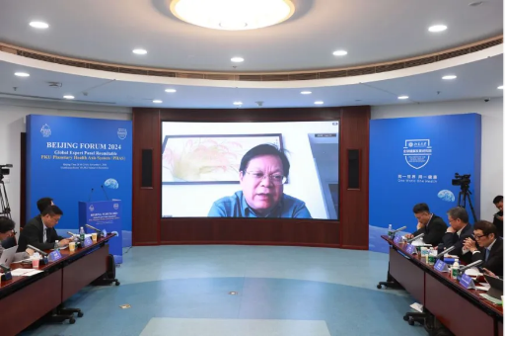Peking University, November 14, 2024: The United Nations recognizes that the health of the planet and the longevity of human civilization are irrevocably linked. For the planet to flourish, so must human health, natural systems, and natural resources. However, as natural systems continue to degrade at an alarming rate, appropriate actions must be taken to prolong the health of humanity and the planet.
Beijing time at 8pm-11pm November 3, 2024, as an integral part of the Beijing Forum 2024, a special Global Experts Roundtable on Planetary Health was held at Peking University (PKU) to discuss the progress made with Planetary Health Axis System (PHAS). The PHAS is a recently initiated project by the Institute for Global Health and Development (GHD) at Peking University that aims to track and assess how human health, animal health, and ecological health contribute to the global footprint. The goal of the PHAS initiative is to create a global public platform that allows world leaders and experts to address opportunities to improve, or challenges to overcome, in global health matters.
Moderated by Dr. Gordon G Liu, Peking University Professor and Dean of Institute for Global Health and Development, the Forum began with Session 1, during which world leaders and academicians provided opening remarks in response to PHAS progress.
HAN Qide, academician of Chinese Academy of Sciences led opening remarks by reinforcing the significance of timely planetary health action and the necessity for countries to work together in finding solutions.
Martin Taylor, WHO representative in China, considered PHAS of great significance, marking a key step towards deepening the global understanding of the complex relationship between climate, ecology, and health.
Gordon G. Liu HAN Qide Martin Taylor
Wang Chen, President of the Chinese Academy of Medical Sciences and Peking Union Medical College, emphasized the necessity of trans-disciplinary collaboration to maximize international momentum in planetary health discussions and progress.
GONG Peng, Vice-President and Pro-Vice-Chancellor at the University of Hong Kong, also emphasized the importance of cross-disciplinary collaboration in matters as widespread as planetary health discussions.
Richard Horton, Editor-in-Chief of The Lancet, highlighted an incredible opportunity within a single generation to achieve great human and planetary dividends if acting decisively on the climate crisis. He expected a great role of the PKU planetary health axis system to play in creating the demand for political and social change.
WANG Chen GONG Peng Richard Horton
Holden Thorp, Editor-in-Chief of the Science, underscored the planet to its limits and the role of Science in changing the behavior of the public and the political system. He commended the PKU planetary health axis system as a digital public good, that is not adhered to an international border, but provides global knowledge for the whole world.
Mark McClellan, The Margolis Professor of Business, Medicine, and Health Policy at Duke University, believed PHAS provides important data support for addressing global health challenges and called for strengthened cooperation between China and the U.S. to reach more consensus and promote global health.
Naveen Rao, Senior Vice President of the Health Initiative at The Rockefeller Foundation, highlighted that the project should adopt a pull model, rather than a push model, ensuring that countries and their communities are prepared to receive these insights and take actions. “Health is an outcome of many sectors, such as poverty, lack of nutrition, violence, and education, and as such, must be analyzed holistically to generate improvement”, said he.
Holden Thorp Mark McClellan Naveen Rao
Session 2 covered the PHAS Pre-Launch Report, moderated by Associate Dean Xu Ming of the Institute for Global Health and Development at Peking University. The framework of PHAS was introduced by Associate Professor John Ji from Tsinghua University’s Vanke School of Public Health, who expressed his hope that "planetary health can unite the world in working toward a common good." Following this, Dr. Chen Ermo, the Chief Scientist of PHAS at the PKU Institute for Global Health and Development, explained the complex framework of the PHAS system and provided a brief demonstration of its future potential. Dr. Bernhard Schwartländer, Global Health Envoy from the German Ministry of Foreign Affairs, stressed that the key to the success of the PHAS project lied in its global vision and systematic collaboration model in the summary remarks.
John Ji CHEN Ermo Bernhard Schwartländer
Finally, Session 3 of the Roundtable held a discussion from guest panelists who shared their thoughts on the progress and future of PHAS. The PHAS project received highly positive feedback from the panelists, and many insightful suggestions were delivered, such as inviting the policymakers to take part in the development of the indicator system, predicting possible future health risks, offering robust prospective support for health management, making data more public available as research in general continuous down the line, etc.
The roundtable panelists consisted of many world leading experts pertinent to planetary health, as follows (in the order of speaking at the forum):
George Fu GAO, Academician, Chinese Academy of Sciences; Director of Academic Committee, Institute of Microbiology, Chinese Academy of Sciences
Andy Haines, Professor of Environmental Change and Public Health at the London School of Hygiene and Tropical Medicine
Dean Jamison, Professor of UCSF Global Health; Co-chair of the Lancet Commission on Investing in Health
LEI Xiaoyan, BOYA Professor of Economics and Chair of Management Council, National School of Development, Peking University
LIU Jun, Professor of Harvard University Statistics Department, Development Commission Chair, Tsinghua Dept of Statistics and Data Sciences
Rob Moodie, Professor, School of Population and Global Health, University of Melbourne
Samuel S. Myers, Professor and Director of Johns Hopkins Institute for Planetary Health
REN Minghui, Professor of Public Health at Peking University; Director, PKU China Center for Health Development Studies
Soumya Swaminathan, Principal Adviser at the Union Ministry of Health and Family Welfare
XIE Yu, The Bert G. Kerstetter '66 University Professor of Sociology, Princeton University; Member, the American Academy of Arts and Sciences, and the U.S. National Academy of Sciences
XU Anlong, Dean and Professor, Hong Kong Institute of Advanced Studies, Sun Yat-Sen University
XUE Jinjun, Professor of Environmental Economics at School of Economics, Nagoya University, Japan
ZHENG Zhijie, Professor of Shanghai Jiaotong University, and Chief Scientist for National Institute of Parasitic Diseases, China CDC
ZHU Yongguan, Academician of Chinese Academy of Sciences (CAS), Director General, CAS Institute of Urban Environment
George Fu GAO Andy Haines Dean Jamison
LEI Xiaoyan LIU Jun Rob Moodie
Samuel S. Myers REN Minghui Soumya Swaminathan
XIE Yu XU Anlong XUE Jinjun
ZHENG Zhijie ZHOU Xiaonong ZHU Yongguan
In the closing remark, Zhang Haibin, Associate Dean of the Institute for Global Health and Development and the Institute of Carbon Neutrality at Peking University, summarized the key themes and highlights of the forum with four keywords: "vision," "diversity," "holism," and "cooperation."
To sum up, the Beijing Forum 2024 on Planetary Health achieved a great success. Renowned scientists and scholars across the globe engaged in in-depth discussions regarding planetary health in general and the PHAS project specifically. They put forward valuable insights and recommendations to further boost sustainable planetary health.
Written by: Megan Huang
Edited by: Zhang Jiang
Source: PKU News
